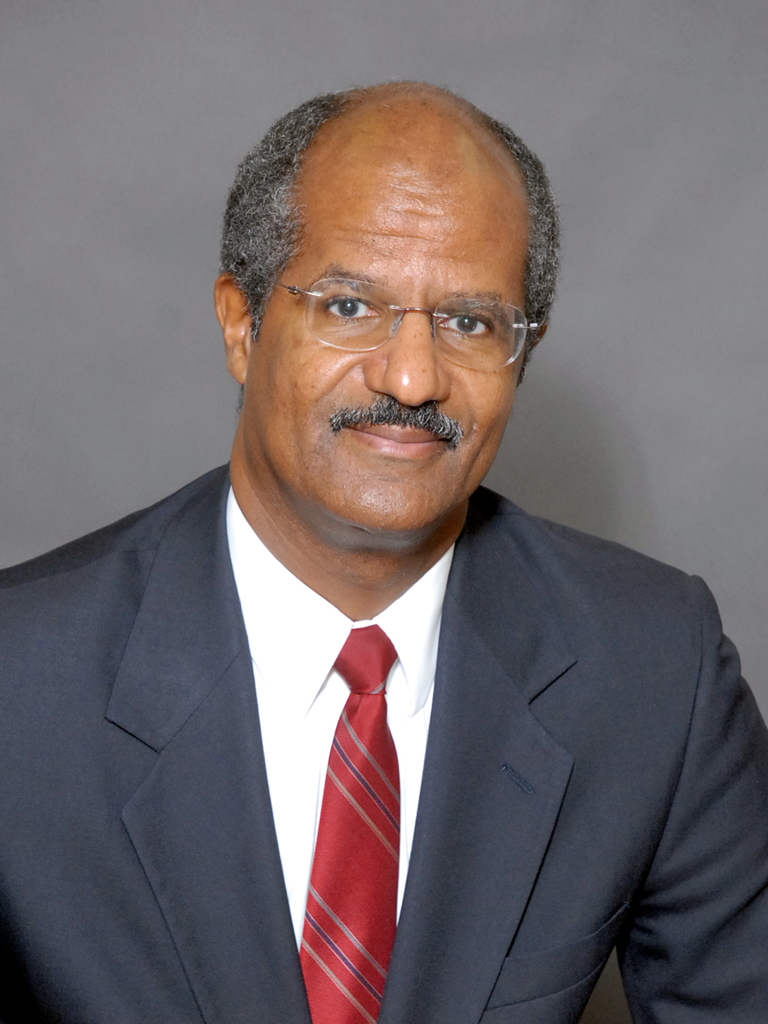SU professor earns authorship on historic LIGO gravity wave detection paper

Stephen C. McGuire, Southern University Baton Rouge professor of physics, is a co-author on the publication reporting the first direct detection of gravitational waves. The article, entitled "Observation of Gravitational Waves from a Binary Black Hole Merger", has been published in the journal, Physical Review Letters. (https://dcc.ligo.org/LIGO-P150914/public/main)
The official announcement of the gravity wave detection was made on February 11, 2016, by way of an international press conference hosted by the National Science Foundation at the National Press Club in Washington, DC that was immediately followed by a local press conference hosted by the LIGO Livingston Observatory. The historic detection was rapidly reported in all major news media outlets including the New York Times, Washington Post, Wall Street Journal, the three major television networks, and their counterparts in nearly every country across the globe.
According to McGuire, news of the detection was significant for several reasons. First, the existence of gravitational waves is the last of Einstein's major predictions that had not been scientifically verified. Second, LIGO is the most sensitive detection instrument ever created in the history of humankind. In order to confirm the existence of gravity waves, the observatory had to detect a displacement of one-thousandth the size of a proton. Third, the confirmation that LIGO can detect gravitational-wave producing events, such as the collision of two giant black holes over a billion years ago, means that scientists will be able to "see" other such events. In demonstrating the detection of this new type of radiation, LIGO has opened up an entirely new window on the universe.
"Leading the establishment of the collaboration between Southern University and LIGO is a major highlight of my professional career. Being a member of the LIGO (Laser Interferometer Gravitational-wave Observatory) gravity-wave discovery team is the culmination of many years of hard work and dedication. I am proud to represent Southern University in this world-class physics experiment especially at such a time in the evolution of gravitational-wave astronomy." McGuire said.
Having published extensively in nuclear physics and its applications, McGuire lectured in the prestigious National Institute of Standards and Technology (NIST) Colloquium Series, in the spring of 2008, on the subject of "LIGO: At the forefront of optical materials research." At that point in its history the NIST Colloquium had included 21 Nobel laureates.
In the fall of 2008 McGuire was elected a Fellow of the American Physical Society (APS), "the highest honor bestowed by APS upon a member by one's peers in recognition of outstanding contributions to physics." Recently he was appointed one of ten inaugural LIGO Scientific (LSC) Collaboration Fellows. (http://www.subr.edu/index.cfm/newsroom/detail/831)
McGuire serves as LIGO Scientific Collaboration principal investigator for Southern University and is the director of the On-campus Advanced Optical Materials Laboratory located in William James Hall. Prior to joining the SU faculty he was an associate professor of nuclear science at Cornell University. The National Science Foundation funds his research on LIGO mirror coatings.
According to the American Physical Society (APS) website, Physical Review Letters (PRL) is the world's premier physics letter journal.
# # #
LIGO SCIENTIFIC COLLABORATION CONTACT:
Stephen C. McGuire, PhD
Professor of Physics
Principal Investigator - LIGO Scientific Collaboration
Southern University and A&M College
Baton Rouge, LA 70813
(225)-771-4396
stephen_mcguire@subr.edu
MEDIA CONTACT:
Henry Tillman
Southern University
Office of Communications
(225) 771-5497
henry_tillman@sus.edu
